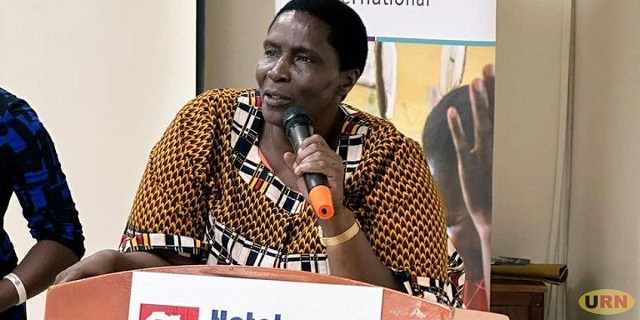
Kampala, Uganda | THE INDEPENDENT | Uganda has rolled out a digital platform designed to support individuals with deafblindness, their caregivers, educators, and policy makers.
The Global Deafblindness Resource Hub, the first of its kind in the region, aims to bridge the severe gaps in access to information, education, healthcare, and social inclusion that people with dual sensory impairments continue to face.
Speaking at the hub launch, Hellen Grace Asamo, the Minister of State for Gender, Labour and Social Development in charge of People with Disabilities, hailed the initiative as a transformative tool that aligns with Uganda’s national and legal commitments to inclusive development. “Persons with deafblindness face some of the most complex barriers to communication, education, employment, and social participation,” said Asamo.
The minister reaffirmed the government’s commitment to expanding inclusive education, healthcare, and digital infrastructure. “When used intentionally and inclusively, technology can dismantle barriers. This hub is living proof of that potential,” Asamo said.
She urged stakeholders including development partners, government ministries, organizations of persons with disabilities, and the private sector to embrace and promote the hub: “Let this be the beginning of deeper collaboration and stronger commitment, not just here in Uganda, but globally.”
The Global Deafblindness Resource Hub, was developed by Sense International in partnership with partners, and consolidates best practices, practical tools, and lived experiences into one accessible online platform. First launched at Google headquarters earlier this year it’s now being introduced for local adoption in Uganda.
Edward Otim, the Regional Director for Eastern Africa at Sense International, emphasized the hub’s significance: “This is our baby. Today we mark a new chapter not only for the organization but for the global deaf blind community. The hub centralizes access to education, health care, livelihoods, and most importantly, to understanding.”
He called on the government to integrate the resource hub into national disability programming and to champion its dissemination across districts and communities. “Let this not just be a product launch,” he said. “Let it be a call to action to create a world where persons with deafblindness are fully supported and celebrated.”
About the hub usage, Otim explained that it can be leveraged both online and offline, and its access is free of charge, making it cost effective, however he expressed concern over people who can not afford owning smartphone.
Abdul Busuulwa, a board member of Sense international Uganda and a university lecturer who was born blind, shared his personal testimony, of the life-changing potential of accessible resources. “I struggled growing up tests were in print, and I had to ask a school cleaner to read to me,” Busuulwa recalled. “He couldn’t read properly, so I missed that test. That’s what lack of inclusion looks like. But this hub gives knowledge, real, inclusive, high-quality knowledge, for families, educators, policymakers, and health workers.”
He added that opening doors to accessibility means opening doors to opportunity. “I was not given my university lecturer job out of sympathy. I earned it. And this platform will help many more to do the same.”
Busuulwa affirmed that the hub not only serves people with deafblindness, but also families seeking guidance, teachers looking for inclusive methodologies, health workers supporting clients with disabilities, and policymakers designing inclusive systems all stand to benefit. “Let this not just remain a digital space, let it be used actively by educators, families, and leaders across sectors. When you open doors to accessibility, you open doors to opportunity.”
Charles Mugisa, Principal Education Officer for Special Needs Education at the Ministry of Education and Sports, took clarified the ministry’s position on inclusive education, noting that many people still wrongly equate inclusion with simply placing children with and without disabilities in the same classroom. “Inclusive education means access, participation, achievement, and progression,” he explained. “If a deaf student sits in a class without an interpreter, that’s exclusion within inclusion.”
Mugisa stressed that inclusive education must span all learning environments, including special schools and even homes for those unable to attend school physically. He called on Minister Asamo to support the finalization and rollout of Uganda’s national inclusive education policy. “Deafblindness isn’t just a dual impairment it significantly limits interaction with the world,” Mugisa added. “We owe it to these learners to bring them on board and ensure they move with us.”
The launch of the resource hub is closely aligned with the Persons with Disabilities Act of 2020, National Development Plan III, and the country’s international obligations under the UN Convention on the Rights of Persons with Disabilities (CRPD).
****
URN
 The Independent Uganda: You get the Truth we Pay the Price
The Independent Uganda: You get the Truth we Pay the Price



